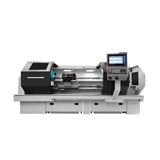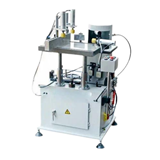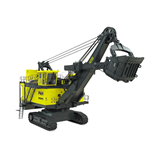At a mining conference in South Africa recently, I met an unusual participant. He as a sports executive rather than a mining magnate and he was meeting the most important people in the resources sector in both Australia and Africa at the specially appointed ‘Australia lounge’ at the event. Source: Tim Harcourt.
He was pretty happy as he has just managed to raise $250,000 in sponsorship for his club from a number of South African companies, including the major South African partner, Nkwe Platinum. His name is Darren Beazley and he’s a former dot com executive who now works as the General Manager of Strategic Partnerships for the Fremantle Dockers Football Club after stints with the Western Australian Cricket Association (WACA) in Perth and the AFL in Tasmania.
He was also a pretty handy footballer himself with Swan Districts in the WA state competition and is a third cousin of Kim Beazley. Whilst the Beazley’s are known as a famous Western Australian political dynasty there are sporting ties as well. Kim Beazley’s mother Betty was an athletics coach who trained the famous Western Australian runner and Olympic medallist Shirley Strickland.
So what is a Fremantle Docker doing all the way over in South Africa? According to Darren Beazley it’s partly about player development and partly about commercial sponsorship. In terms of sponsorship the AFL clubs know they have a limited pool of dollars to attract in Australia, even in mineral-rich WA, and therefore they have to look for new frontiers. As Beazley puts it: “The sponsorship pie is only so big, so we’ve got to find another pie. That’s why we are involved with NKWE and looking to get involved further in the South African resources sector.”
On the field too, South Africa is also proving to be a new frontier for AFL player talent. According to Beazley, the game is expanding rapidly in North West of Pretoria which serves as the Dockers’ development zone. “There were around 2,500 AFL players in 2006 and now we’re at around 7,000. I used to be a sceptic but actually being here makes me a true believer,” he said.
Beazley’s sentiments were shared by several AFL officials in South Africa from Kevin Sheehan and David Matthews in the AFL Talent management and game development area to the game’s ‘global ambassador’ Kevin Sheedy and Indigenous icon of the game Michael Long, all of whom have regularly visited South Africa. According to David Matthews: “at current rates, there will be as many AFL footballers in South Africa as in Tasmania by 2009.”
The AFL has also run a successful Auskick programme in South Africa (know as footyWILD) that has helped health and development in the townships (reducing smoking rates). Australian entrepreneur Andrew Douglas, who runs the Cape Town based-Salamander group has helped drive the footyWILD programme along with Corporate Social Responsibility (CSR) programmes for corporates in South Africa, Australia and India.
He sees Africa as “full of untapped opportunities, with plenty of growth for social entrepreneurs as well as traditional resource companies. Lisa Browne of the Australia Africa Business Council agrees (AABC) about the opportunities. She says the links between the two continents are increasing: “I travel between Perth and South Africa six times a year and the flights are always full, particularly with the resources boom the way it is gearing up.”
Indeed, at the Cape Town conference, Mining Indaba 2008 – an 8,000 strong gathering of global mining interests – it does feel like an extension of extension of WA’s mining interests and there are plenty of Perth residents at the conference consisting of former South Africans and the home grown variety. The Australian delegation at Mining Indaba 2008 seems to read like a who’s who of Perth and on the other of side of the Indian Ocean, Perth is a mini-Johannesburg as well, with lots of South Africans who have settled in the West.
There were fears that after the heady days of the anti-apartheid struggle, that Australia would forget South Africa. Even Tansey Coetzee, Miss South Africa 2007, said her main aim was to make sure the world “didn’t forget South Africa now that apartheid is a distant memory.” However, it looks like that there’s no danger in that occurring as Australia’s two-way trade with South Africa was worth over $4.2 billion last year and Australia goods exports have been growing at almost 17 per cent per year on average since the end of apartheid with 2226 Australian companies exporting to South Africa in 2006-07.
But how about beyond South Africa? According to Phillip Green, Australia’s High Commissioner to South Africa, Australians are building on their South African success to venture elsewhere on the continent. For example, in Malawi, Green says that “30 per cent of that country’s exports is due to one Australian project led by Paladin.
Equinox runs a big project in Zambia (with help from Australia’s Export Finance Insurance Corporation), and there are major Australian interests in Ghana, Tanzania, Mozambique, Mali and Namibia.” Green described Australia and Africa as the world’s “two great mining continents” to a who’s who of African minerals and energy ministers at the Australia Lounge at Mining Indaba 2008.
Certainly in Africa, the name of the game is mining - hence the strong Aussie and Sandgroper influence at Indaba – but how about beyond mining what other industries will benefit? According to Greg Hull, Australia’s Senior Trade Commissioner in Johannesburg, there are great spin offs from Australia having a strong presence in the African resources sector. “People think mining is all about digging this up, but they forget about the technology, training and logistics involved.
As well as the big guns like BHP Billiton and Rio Tinto, there are plenty of Australian services exporters in Africa who do a lot on the training and technology side. Companies like Mincom, Micromine and Ghekko were big players at Indaba and Australia’s expertise in technology, training and logistics spills over to a number of sectors.” Hull expects South African agriculture, manufacturing and education (particularly the TAFE sector) industries to be a big attracters of Australian technology, investment and know-how in years to come.
There was also a big Australian presence in Pretoria too at Centurion Park as the Fremantle Dockers played Carlton as part of Mining Indaba 2008. Whilst there weren’t quite cries of “Freo Nelson Mandela” at the game, the Dockers did win and clearly made a bit of progress on both the development and on the commercial side in the Rainbow nation. In South Africa, there are may be no free kicks, but thanks to Darren Beazley, Freo, like the Australia resources community, is making a good start.
Get 3+ quotes so you can compare and choose the supplier that's right for you


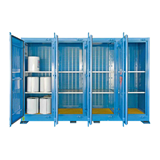








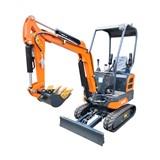

-160x160-state_article-rel-cat.png)

